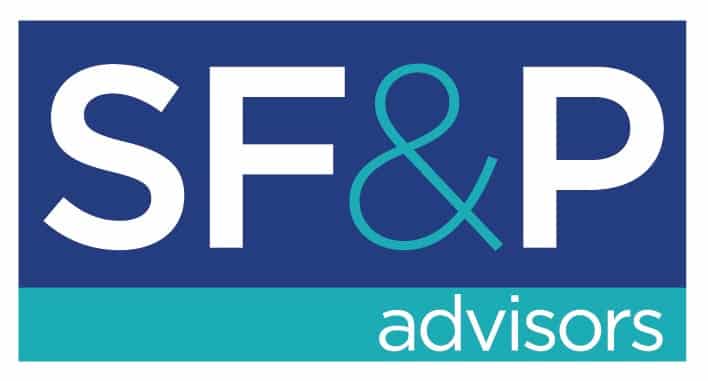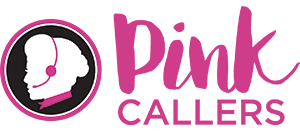This guide is smashed full with the best productivity books, productivity apps, tips, tools and strategies.
Feel free to check out the table of contents to scan all that’s in the guide.
Share on social if this guide is useful to you! Thank you for reading!
Productivity Book Summaries
I wanted to curate book summaries of some important marketing and productivity books in one post here. Take a look and thanks for checking them out! Without further ado “Best Marketing and Productivity Books – 10 Summaries!“
Blue Ocean Strategy – Summary

The Tipping Point – Summary

Getting Things Done – Summary

4 Hour Workweek – Summary

Rich Dad, Poor Dad – Summary

The One Thing – Summary

Tools of Titans – Summary

Zero to One by Peter Thiel – Summary

Think and Grow Rich – Summary

The 48 Laws of Power – Summary

To be clear, I love pens and paper. I think if you need help at this moment getting things done, writing a list of your major projects and to-do items and a specific next step for each is your best bet. But if you like having fun with your productivity some of these apps will help make it more interesting.
Apps for checklists and help gettin’ it done
1. Streaks – Phone and Apple Watch App – Let’s you track strings of days doing 6 key habits each day. Definitely one of the more fun spins on a classic to-do app.
2. Proud – Phone and Apple Watch App – Dead simple to-do lists by today, tomorrow, this week, based on present moment periods. Here’s a video review:

3. Clear – iPhone and Computer App – By far the prettiest user interface of the to-do apps
Apps for self-discipline
4. Self-Control – Computer app – Like a one-person, self-inflicted firewall, Self-control makes it so for a pre-determined amount of time you’ll be unable to visit a list of sites that you say you want to not visit. Example– you can make it so you can’t access Twitter and Facebook when you’re wanting to focus on a Chunk of Work.
5. Rescue Time – Computer app – Tells you how much time you spent on distracting, netural or productive time so you can keep a track of your habits by the week.

6. Pomodoro Timer App – Computer App – Sometimes the best way to work is in bursts with 5 minute breaks after each burst. The Pomodoro technique is based on the classic kitchen timer, was pioneered by programmers and is definitely interesting to try. This is just one of the many apps that features the Pomodoro technique.
Miscellaneous Productivity Help
7. MyFitnessPal – Phone App – Helps sync smart objects like my smart scale, easily log foods for watching your nutritional and caloric intake. I chose this app out of the sea of Fitness and Nutrition apps because of the ability to sync with Apple, Fitbit accounts, and smart devices.
8. Fiverr – Online Tool – Find people willing to do pre-determined tasks for $5 bucks. Great for little bits of data entry, repetitive small tasks, transcribing a video, or the like.
9. Unroll.me – Computer and Phone App – Helps you be more productive by quickly unsubscribing from a bunch of newsletters quickly. Only works for Gmail and other large providers otherwise this would be top of the list.
10. IFTTT (If This Then That) – Phone and Online – Allows you to sync services and smart devices with ‘recipes’ or very simple if this then that set ups. For instance, If ‘I post a photo on Instagram’ then tweet that same picture on Twitter with the raw photo instead of an Instagram link.
11. UpWork – Online App – Find freelancers and hire them by the project or by the hour. It allows you to see screengrabs of their work diary and communicate easily back and forth before hiring. Lots of visual designers, developers, SEO-ers, data specialists, and writers to extend your ability to get things done without breaking the bank.
Financial Tools
12. Intuit QuickBooks Self-Employed – Phone App – Allows you to hook up your bank accounts and quickly swipe left or swipe right if it’s a business or personal expense. Tracks your drive time and allows you to say whether it was for work or leisure.
13. EveryDollar – Phone and Online App – Helps you put a budget in place and connects to your accounts to give you a clear picture on how you’re stacking up to your plan.
One App for Unproductivity
14. Calm – Phone App – Amazing for guided meditations for various needs whether they be anti-anxiety or being present and in the moment. A calm mind requires some time and space to gather itself, and then when you’re trying to be productive again you’ll be able to work better with a clear head.
Productivity Tips & Tactics
1. Create specific end times for certain small tasks related to a larger goal. Take your important next goal and break it up into 3 smaller bites that are an hour and a half long. Write them on a piece of paper. Set a timer, and jot down the actual progress after each block of time.
2. Avoid meetings; when you must meet, make it effective. It can be best to say no to meetings upfront. Just say, “Sorry, I can’t make it. I’m tied up with a project right now.” And that’s always true. There are always projects you could be working on that are more important than a meeting.
3. When meetings are necessary, require an agenda to be set before the meeting. Having a defined set of objectives to accomplish in a group setting is respectful to everybody’s time and can help things move along more smoothly.
4. Write out 3-5 of your most important tasks for the next day, and when you sit down the next day to work do nothing else until you’ve finished these all-important tasks.
5. Do something you’re passionate about. If you really want to do something, you’ll work like hell to get it done. You’ll work extra hard, you’ll put in even more hours, and you’re less likely to procrastinate. It’s for work that you don’t really care about that you procrastinate.
6. You’re only productive if you are doing work that moves you towards a goal. Eliminate non-essential tasks from your to-do lists, and start to say no to new requests that are non-essential.
7. “If something can be done 80% as well by someone else, delegate.” -John Maxwell
8. Listen to audiobooks. Reading can be great for self-improvement, but sometimes the time is just not there. Find books that relate to your greatest major aims and look for the audiobook version of them. Listen in transit or when you are doing visually oriented tasks.
9. Take breaks. Reward yourself with some time after getting a couple of significant chunks done, and consider taking 1-2 specific days off during the week even if your tendency is towards working all the time. Taking a step away can very much enhance your work when you come back to it. Also, this is good for being less anxious.
10. Simplify. Get rid of excess possessions, activities, responsibilities. Ask yourself, “Is this vital or just nice?”
11. Get a reminder app, or use your phone’s calendar for everything. Always carry a pen and paper, and write everything down. Don’t trust your brain to remember anything. By not relying it on it for simple memory tasks you can free up space for creative thinking.
12. Top dog of this lists productivity hacks: Do shit. You can’t perfect a game plan that hasn’t been tested in the field of reality. You can’t correct a path that you have yet to walk. If we spent more time doing shit, we’d get a lot more done. Simple.
The Best Way to Stay Productive is Deep Motivation.
Stay hungry my friends
For me I’m continually pushing my boredom threshold and things are not always exciting. So perhaps, for this reason, I’m continually learning on the side of my current career trajectory.
Sometimes even if I am extremely stimulated by the work that I’m currently doing, I want to keep learning and expanding my horizons either on work related to my main career path, or somewhere close.
In my experience, I find working on ‘mini-curriculum’s’ and setting them up myself helps me push through and target a particular point of interest. I did just recently have a four phase, 2-4 month plan turn into something I realized I couldn’t quite pull off in the time I had set aside for it though, so I’m strongly considering setting future curriculum’s for a months time, and not trying major lengthy ones for the sake of my ability to finish without becoming overwhelmed.
If you were to try doing a ‘mini-curriculum’ I think my suggestion would always be find something within your field that excites you and energizes you and that you want to learn about more deeply.
If you have a career in web design, and you want to learn about UX, for instance, , start curating articles (here’s a great app that allows you to save articles for later: Pocket) that relate to the subject, ask someone who’s more familiar what book to start with to get into it, and set up some exercises for yourself related to that theme to get the ball rolling.
I’ve found that writing a blog post about the experience can help incentive me to follow through with my plan, as this plays to my natural motivation of wanting to do something so I can tell other people about it (I know, it’s sick) but it’s best to use you’ve got. Use whatever naturally motivates you to help you create a personal incentive scheme to keep you going. I like to write out the curriculum in phases, and as a graphic designer I go into InDesign or Illustrator and make it look nice so I get excited to look at it and build value into it that way. Apparently, I market intentionally to my self.
I want to lay this out in a way that is easy to read and clearly sets my goals and tentative self-deadlines so I can see them
I always feel like it’s best to do these sheets that my later self will reference as if my later self will need it laid out as clearly and simply as possible. You never know if I’ll be tired, or be looking for an excuse to not do it, so this method helps me minimize any need for excuses and amplify the overall ‘usability’ of my mini-curriculum.
The truth is, that sometimes I need a kick in the butt as far as getting stuff done, and/or a way to get a lot of stuff done at once. Although my Sunday’s are somewhat of a day off for me, a Saturday is not a bad day to get a lot done at once, and perhaps you have something like that for you. If you set your own schedule (i.e. full-time freelance work, or something like that,) you’ll have to set aside time very intentionally. When I was doing full-time freelance work I found that any time was a good time to go crazy with the amount of work I was doing and hadn’t yet taken the work-life balance thing super seriously.
But alas I’d like to think that is part of growing up. This mini-curriculum idea is not meant to get you working like a dog in the evenings. It should all be set up so that it energizes you and at the same time helps you get better at your primary goal.
Some other things you can try to help support your goal of learning whatever subject you choose.
-
-
1. Interview people in the field that you respect for your article.
This can be a lot easier than you suppose sometimes. People want to part of stuff, especially stuff that makes them look good, and that can be free publicity for their book or business. Interview them in person or over the phone if it makes sense. There are free programs for both Android and iPhone that can help you record your phone calls (Make sure the other person knows they are being recorded, and how it will be used,) and use the recording to glean useful resources, tips, and quotes from the interview. Be sure to link to their twitter account, book, and/or business if you use content from your conversation and perhaps this can help with your promotion of the hopefully amazing content you produce!
-
2. Document your process.
Especially if during a push to learn new things you’re sketching, or writing, wireframing, or designing, take pictures of the things you’re working on. They don’t have to be pretty, but everybody loves process shots. To clients they help provide context, and support the important awareness that you didn’t just come up with this out of nowhere, you’ve worked hard and did your due diligence where appropriate.
-
3. Do it. Whatever it is that you are learning about… Do it. Not once, not twice. Do it three times.
Do it each phase. Because this is compulsory, and not something that is necessarily being asked of you by any particular client or boss, you can be wrong.. or be basic. We’re all learning and this way you can be a noob and not face any consequences. Whatever the particular thing you are learning there is probably are tons of facets of that could be said about this phase. But I highly suggest getting your hands dirty, documenting the process, and then add it to your repertoire of things you know about.
-
This kind of attitude will carry you far, and energize your current pursuits. Write your own mini-curriculums, if you’re a designer, design them, and reap the professional rewards of staying energized, constantly learning, and being an overall badass.
Crucial for productivity: Goal setting is Scientifically Effective
I really like writing out my goals, and was just recently making a very specific list of goals that are set about a month out.
As a designer, I love making my goal-setting sheets visually appealing, but more importantly, it’s best to make those goals particularly specific and give them a date.
A recent study found that writing down your goals was scientifically proven to get better results
Not only is writing down goals important but another study demonstrated that writing goals, and sharing them with a friend is the most effective way to keep oneself on track with achieving ones’ goals.
An abridged version of the results of that study:
Psychology professor Gail Matthews recruited 267 participants from a wide variety of businesses, organizations, and networking groups throughout the United States and overseas for a study on how goal achievement in the workplace is influenced by writing goals.
There were five groups in the study:
Group 1 was asked to simply think about the business-related goals they hoped to accomplish within a four-week block, and to rate them on difficulty, etc. Groups 2-5 were asked to write their goals and then rate them on the same dimensions as given to Group 1. Group 3 was also asked to write action commitments for every goal. Group 4 had to both write goals and action commitments and also share these commitments with a friend. Group 5 went the furthest by doing all of the above plus sending a weekly progress report to a friend.
The individuals in Group 1 had accomplished 43 percent of their stated goals. Those in Group 4 had accomplished 64 percent of their stated goals, while those in Group 5 had accomplished an average of 76 percent of their goals.
Not only writing one’s goals down is important but sharing them with someone who has your back is too.
Why I personally find writing my goals down delightful
One – It opens me up for other things
If I get it out on paper, I don’t have to try to recall what my goals were all the time. Yes, they may be on the back-burner in my mind, but it frees my creative juices up to work on other things.
Two – It helps me say ‘no’ to things that don’t matter
If I’ve clarified that my goal is to create 3 hand-lettering masterpieces, exactly one month from today, I might be a little bit more clear and OK with turning down a brochure design. Can I do it? Yes. Do I have to say yes to every opportunity, if it’s not directly related to my goals I’ve clearly established? No. This way I have a bit more clarity on my personal values over the next span of time that I’ve set my goals for.
Three -Because I can get excited, and push myself a little bit more to get what I want
I’m not always on a sprint to learn and grow as much as I possibly can in a particular area. Sometimes I’m playing the technician role, working on websites or branding projects that make use of the knowledge I’ve gleaned from past work, study, and application. But, when I set my sights on a higher level, written goal-setting can give me the added encouragement to push myself a bit higher. This way I can literally look at the goal I’ve set and used it as a beacon, and imagine myself accomplishing something exciting. When I do complete a goal, I can celebrate. Because it was clearly defined and a date was set, there’s no reason why I can’t give myself a pat on the back for a job well done. These are the reasons I can get excited about setting goals, writing them down, and sharing them with a friend.
Practical suggestions for goals
Write them down
Make them very specific
Break them down into actionable chunks
Share them with a friend
Make a commitment to give your friend weekly updates on your progress with the goals
Break out the top 3 things you want to do in a given day
This will help energize you with clear direction for the day, without the giant to do list. These three items can be the top 3 items and can be broken down into less overwhelming bites, but having three main tasks for the day clarifies your priorities and gives you direction. Everything is overwhelming in massive doses, but even an elephant can be eaten if you just take a bite at a time.
Define your biggest pump-up devices and use them.
You know about coffee… but what about lesser utilized ways to power through fatigue that we may be overlooking?
- Drink 3 glasses of water in a row: fatigue is occasionally just confused dehydration.
- Take a mile run, or a 45 minute workout
- Listen to some high energy music (My personal favorite is Infected Mushroom but you could just as well be a Girl Talk fan (here’s another album like that: The White Panda) or into Daft Punk. To each his own, beliebers, or Trap music fans, whatever gets you in the mood to be productive.
Improve your diet. Eat your tastiest, healthiest favorites
It’s not always easy to eat like you want to. What’s convenient is not always healthy, and what’s healthy is not always cheap. And if it’s healthy and convenient it’s almost assuredly not cheap. Consider how much diet has to do with energy, and perhaps you’ll understand it’s an investment in your energy, and a person with energy can make more money. So if that’s worth it for you to invest in some healthy convenient foods for your fridge.
- Baby food in packets: People think I’m crazy, but I’ll be the one laughing all the way to the nutrients. I think the food industry is going to expand their marketing efforts on superfoods in packets from babies to also include adults, but until then I’ll still be squeezing pear and pea baby food packets and waving to my homies like a crazy person.
- Whole Grain Natural Energy Bars: Look for the ones with natural ingredients and without a ton of high fructose corn syrup and artificial sweeteners.
- Greek Yogurt: I am not a nutrition expert, but these are a few of the healthier on the go foods I’ve managed to incorporate into my diet. I always feel better way I pay attention to the nutrients entering my body.
Write it all down, get your productivity app out
It’s not going away if you don’t. It’s just lingering in your subconscious waiting to nag at you. When you get it down on paper, it loses some of its power. You can label some items, “not now” or “deferred to [this date]”, or even delegate them to an appropriate resource. You have to utilize all the hours in your day and keep yourself productive, but perhaps there is literally not enough hours in the day. You should be prepared to defer or delegate when necessary.
Take a look at ridiculously good work
Make sure to note that most work is not this good, so don’t get discouraged by it from feeling intimidated. But, amazing work will surely give you ideas for how to make your next or current project incredible. If you are a web or visual designer check out these 3 amazing websites that are recent, and these 7 resources for looking at amazing design work.
Bonus: Don’t push through. Rest
One day doing the easiest thing you can think of can be truly refreshing. There are incalculable benefits of taking a walk and watching a movie. Call up a friend and dust off your guitar. Pick up the brushes, or the spatula. What do you also love doing besides design or [enter work passion here]? Take a day to exercise that creative passion. Every week you should at least have a day to do things just for fun. If you’re like me and tend a bit more towards workaholism, be true to your inner child and relax a bit occasionally. If it’s not the time for that, consult 1 through 5 and make it happen, sometimes the most relaxing thing is knowing you got a ton of stuff done.
The Ultimate Productivity / Success Hack – Hard Work & Time
With a cup of oily cold press coffee beside me and more classes than I felt comfortable taking, I imagined myself a year later. I’ve just always wished myself along, a bit further down the journey… Older and wiser, classier and with more taste. It speaks to the idea of “divine discontent” or the interesting truth that being uncomfortable with where you are at, will propel you into developing your skills further.
Be real with where you’re at, and don’t try to skip steps.
But occasionally I recognize that it takes a strong mind to really take a hard look at yourself and where you are and be O.K. with it. Hard work & Time is what it will take to propel you to the next step, and no steps should be skipped along the way. This is important. Recently I read the book Mastery by Robert Greene and he emphasizes the fact that time is the secret ingredient to mastering any skill, and to overlook this fact is to buy into the magical thinking that so many people in our culture hopefully subscribe to.
I still wish I was further, but there will always be further.
For me, coding and visually designing for the web has been a bit of a journey so far. And to be honest, I’d still love to be farther than I am now so that driving discontent is still there, but I want to take every step along the way deliberately and at an appropriate pace. I’ve found that the further I am along the particular journey I’m on, the more I feel as though it’s ok that there’s a long way to go. For programming (and many evolving fields) the journey is likely infinite for our lifetimes as technologies and techniques keep evolving and changing, and the motto is to evolve or die.
The right kind of fear can fuel you.
A healthy dose of fear won’t kill you, it should drive you to your best work yet on your next project. – Tweet this – I’ve found this always needs to be balanced with consideration for others; occasionally I’ll find a bit of fear driving me to be unnecessarily self-absorbed in a situation where I need to be thinking about others. So, in that case, I just need to recognize it, and allow my thoughts of others to grow, even if just for practical reasons and not altruistic ones. I find that when I’m self-obsessing it can get in the way of my creativity and the freshness of my ideas.
Our culture has an obsession with shortcuts, and it’s true when appropriate ways to stay efficient will help us do better work it makes sense to use them, but some things such as full mastery of a craft simply take hard work and time. Do you feel like our culture has an obsession with skipping the hard work… Or no? Let me know in the comments or Tweet at me, at twitter.com/timbrownmpls.
















